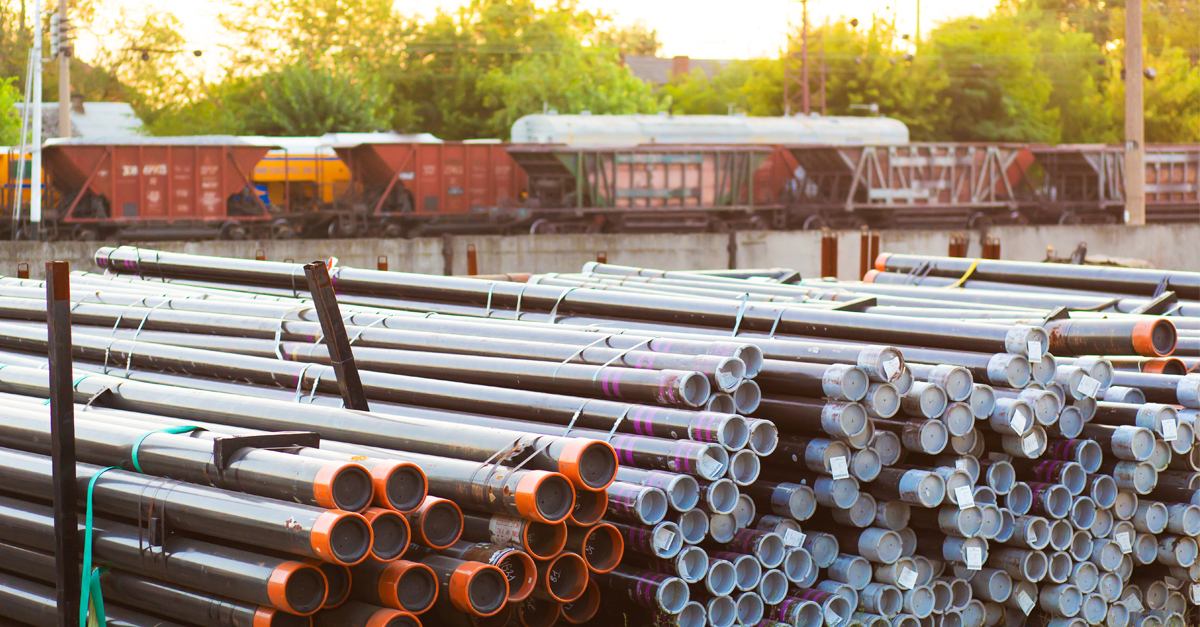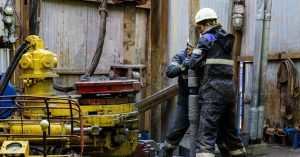If you work in oil and gas, you’ll already be familiar with OCTG. But how much do you know about corrosion, the issues it can cause, and how to prevent it? We’ll start with OCTG basics, then dive into what coatings can do for you.
What does OCTG stand for?
OCTG stands for Oil Country Tubular Goods. Simply put, OCTG are tubes or piping products used in the oil and gas industry, as well as hydrogen generation, transportation and storage. They can refer to products used both offshore and onshore. Pipes that are used and stored offshore are near the sea and therefore in a more saltier environment which makes them more prone to corrosion. These pipes are essential to economies and to keeping countries running, and therefore durability and reliability are key elements of OCTG.
Types of OCTG
There are three main types of OCTG, all of which are essential to oil and gas extraction processes.
- Drill pipes: These are heavy, seamless tubes that rotate the drillbit and circulate drilling fluid. They allow the drilling fluid to be pumped through the bit and back up the annulus (the space between the casing and the piping or tubing around it, which allows fluid to circulate). Drill pipes need to be extremely durable as they are subject to high torque, internal pressure and axial tension.
- Casing pipes: Steel casing pipes line the borehole that is drilled into the ground to get the oil. It has a large diameter and is held in place with cement. Casing pipes prevent contamination and caving in, and are subject to axial tension, as well as both external and internal pressure.
- Tubing pipes: Tubing is the pipe through which the gas or oil travels. It is found inside the casing pipe and transports the gas or oil from the drilling area to the processing facilities. Tubing pipes are subject to pressure throughout the extraction process.
Are OCTG coatings necessary?
The short answer is yes.
OCTG can be susceptible to corrosion, which makes them less durable and more unreliable. The outer diameters of OCTG can corrode due to soils, wet conditions and more, while the inner diameters’ corrosion is due to moisture in the air during storage, and liquids and gases that pass through during use. If a pipe leaks, cracks or breaks, it can not only jeopardise the extraction process, but also contaminate the environment and potentially cause an explosive hazard.
OCTG coatings help prevent corrosion and increase durability. Coatings will differ based on whether they’re being applied to the inner or outer diameter, as the causes of potential corrosion differ between the two, particularly once they are installed and in use.
To prevent internal corrosion, the coating should be able to withstand potentially extreme conditions, such as weather fluctuations. It should prevent water reaching the surface of the pipe, and suppress the spread of any residual corrosion cells that made it through the processing stages.
For external corrosion, the coating should be able to withstand extreme hot, cold, wet, or acidic conditions, while protecting the metallic surface from any harsh environmental abuse as well as any knocks that may occur through handling.
OCTG coatings help reduce the risk of costly failure and the potentially devastating environmental impacts from oil leaks or spillages. However, their traditionally solvent base can have their own environmental problems with volatile organic compounds (VOCs) emissions.
AGMA has been working hard to create a product that is extremely effective and also better for the environment, as well as being fast-drying so you can process pipes more efficiently.
Download our industrial product brochure for more information.



